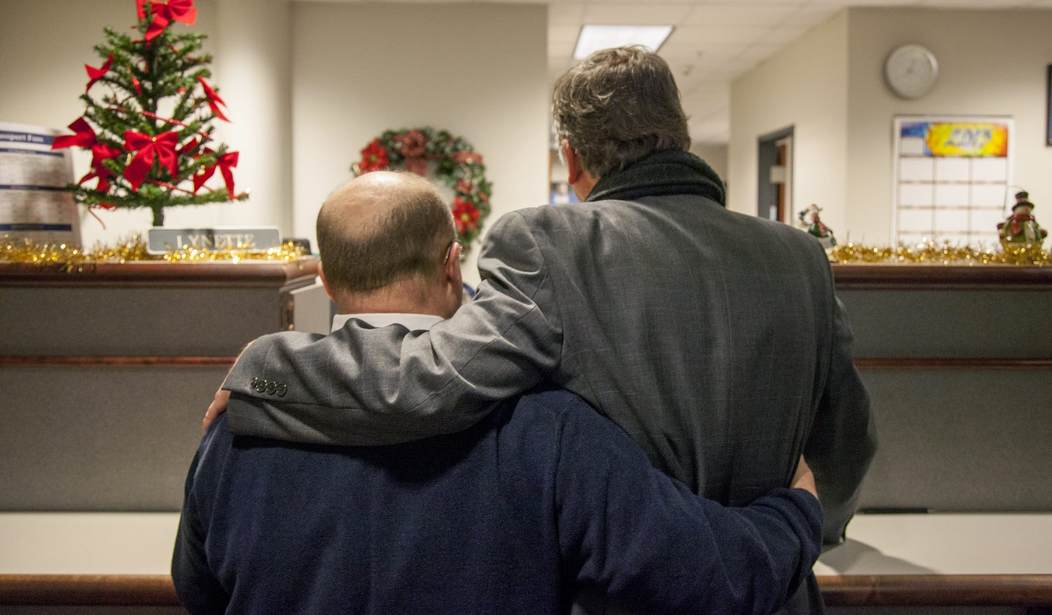The idea that teachers would be able to decide how the subject of homosexuality should be presented to children seems ludicrous and dangerous to Gayle Ruzicka, the president of the Utah Eagle Forum, the state chapter of a national pro-family group established by Phyllis Schlafly in 1972.
But Ruzicka, a conservative political activist and radio talk show host, told PJM she is afraid that could be the result of a federal lawsuit filed against what are known as the “No Promo Homo” laws in Utah.
Equality Utah and three students, represented by the National Center for Lesbian Rights (NCLR), filed a federal lawsuit Oct. 21 challenging Utah laws that the suit charges “ban positive speech about lesbian, gay, bisexual, and transgender (LGBT) people in Utah public schools.”
There are several other states that also have laws intended to prevent public school teachers from advocating homosexuality and sex outside of marriage. The gay rights group GLSEN lists Alabama, Arizona, Louisiana, Mississippi, Oklahoma, South Carolina and Texas as the seven other states with No Promo Homo laws.
The lawsuit against the Utah laws, the first of its kind in the nation, alleges that the No Promo Homo laws violate the First Amendment and federal law by discriminating against LGBT people and restricting the free speech rights of students and teachers.
“These are some of the last remaining anti-LGBT laws that are currently being enforced in the country, and they’re especially odious because they explicitly apply to school classes on every subject,” said Equality Utah Executive Director Troy Williams. “These laws send a message that our lives are shameful and must be hidden and censored. They create a deadly culture of silence and non-acceptance, causing harms that can never fully be undone.”
But Ruzicka said Utah children and families need the laws that prevent teachers from advocating homosexuality in public school classrooms. Another portion of the law prevents teachers from advocating sex before or outside of marriage. Ruzicka said that prohibition should also not be overturned.
“These are children, not adults. And at a time when there are so many problems – anywhere from STDs to teenage pregnancy to broken hearts – to say those laws discriminate against homosexual students is crazy. We are teaching all students to practice abstinence and we are not advocating for any particular lifestyle.”
But NCLR Executive Director Kate Kendell, a native of Utah, said this lawsuit was about more than sex.
“(The laws) censor constitutionally protected free speech, including students’ right to receive accurate information about sexual orientation and LGBT people,” said Kendell. “These laws openly discriminate against LGBT students and teachers.”
Attorney Douglas Hallward-Driemeier, who argued before the U.S. Supreme Court in the same-sex marriage case known as Obergefell v. Hodges, will present arguments for the NCLR lawsuit in federal court.
“These discriminatory laws are outdated, harmful, and blatantly unconstitutional,” Hallward-Driemeier said. “They serve no purpose other than to isolate and stigmatize young people.”
Ruzicka said it was ridiculous to argue the No Promo Homo laws are a violation of a teacher’s — or anyone else’s — First Amendment right to free speech.
“We always tell teachers what they can teach and what they can’t teach. The parents have the right to do that,” Ruzicka said. “The teachers never set their own curriculum or standards.”
The lawsuit also claims that the laws contribute to anti-LGBT harassment in Utah schools.
For instance, an NCLR press release claimed one of the student plaintiffs named in the suit experienced severe physical and verbal harassment from other students in his kindergarten class because he chose a gender different from his birth-assigned gender.
“When his parents complained to school leaders about the harassment, they were told that the school district could not protect their son because of these discriminatory school laws,” the press release stated.
One of the other student plaintiffs was given a class assignment to give an oral family history report and wanted to report on his uncle’s marriage to his same-sex spouse, but was told he could not talk about his uncle in front of his classmates.
William Duncan, the director of the Sutherland Institute’s Center for Family and Society in Utah, has a couple of problems with the NCLR/Equality Utah lawsuit.
To begin with, he doesn’t think that a federal lawsuit, which Duncan said prematurely ends the conversation, is the way to address this issue.
Duncan wrote on the Sutherland Institute’s blog that the lawsuit “prematurely ends the conversation” and “most importantly, it prevents the participation of Utah parents, who have the primary responsibility for their children’s education and whose voices are essential.”
Like Ruzicka, Duncan does not want the authority of parents or their elected representatives to be usurped by a federal court decision. And Duncan is worried that the Utah case will impact the other states that have similar laws.
“The claims made by this lawsuit are novel and unprecedented,” Duncan wrote, “and will surely have far-reaching implications for the use of classroom time, school environments, parental responsibility and government accountability.”









Join the conversation as a VIP Member